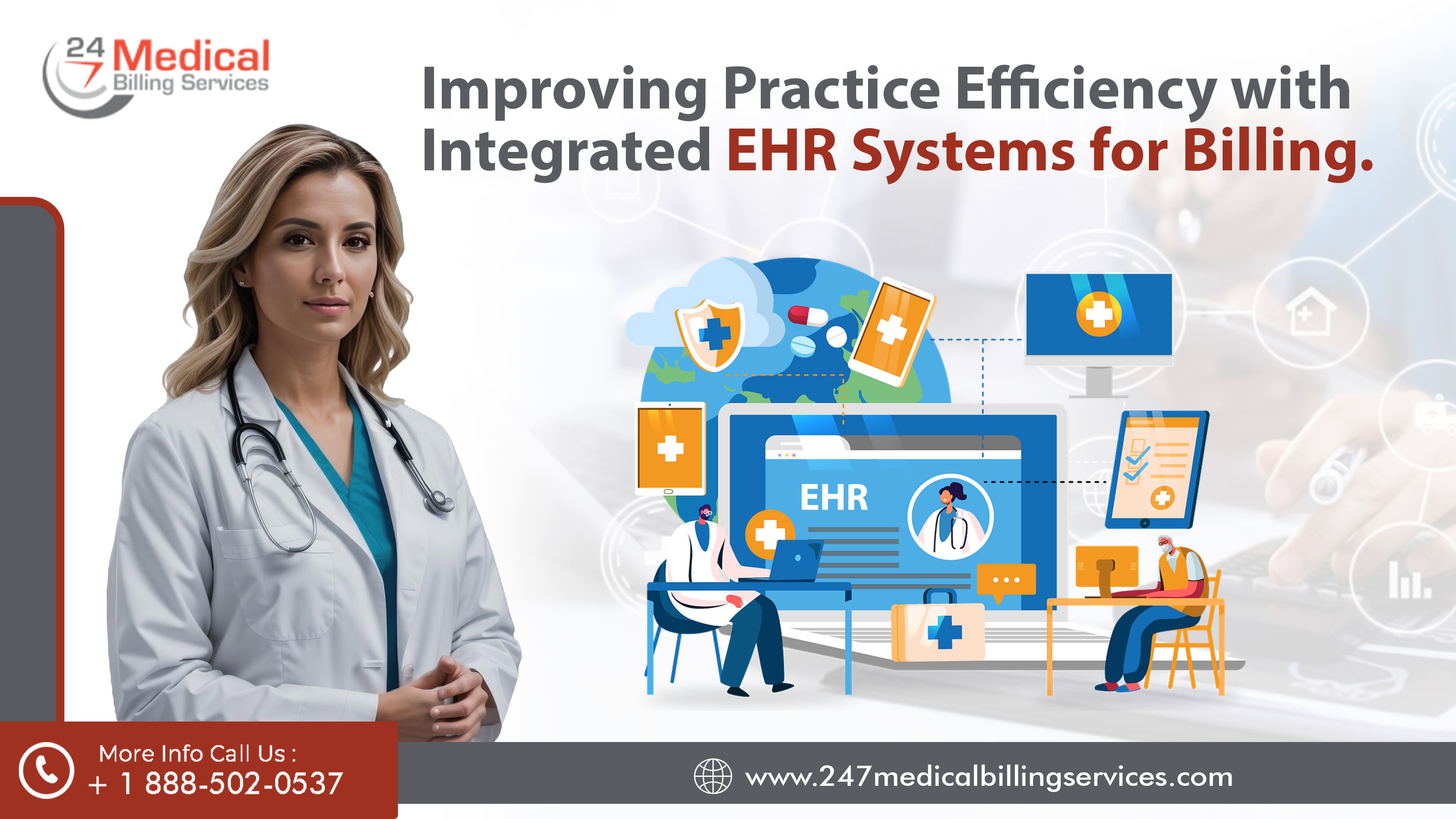
Improving Practice Efficiency with Integrated EHR Systems for Billing
Integrated Electronic Health Record (EHR) systems for billing are comprehensive digital solutions that streamline the medical billing process. They automate billing and coding tasks, allowing healthcare providers to submit bills electronically to patients and insurance companies. These systems ensure that billing information is accurate and up-to-date, leading to timely reimbursements. Therefore, these systems enhance the overall efficiency of healthcare practices by integrating patient records and billing functions. Let’s have a look at how it improves practice efficiency:
Role of Integrated EHR Systems for Billing
1. Automation of Billing and Coding
Integrated EHR systems automate the billing and coding processes. This automation minimizes human errors that can occur with manual entries. For instance, Kareo is a cloud-based software that automates claim submissions and insurance verifications. By reducing the time spent on these tasks, healthcare providers can focus more on patient care.
2. Streamlined Workflows
These systems streamline workflows by reducing redundancy. AdvancedMD provides a comprehensive software solution that combines medical billing with practice management. This integration allows staff to access patient records and billing information from a single platform, significantly reducing the time spent searching for documents.
3. Enhanced Access to Patient Information
Integrated EHR systems provide healthcare providers with immediate access to patient information. For example, Athenahealth offers a cloud-based EMR that allows multiple providers to view a patient’s records simultaneously. This accessibility enables better collaboration among healthcare teams, resulting in improved patient outcomes.
4. Improved Patient Engagement
EHR systems often include patient portals that enhance engagement. Patients can view their medical records, test results, and billing statements. CureMD offers a patient portal that allows patients to access their information anytime, which fosters better communication between patients and healthcare providers. This improved engagement can lead to higher patient satisfaction.
5. Real-Time Data Analysis
Integrated EHR systems enable real-time data analysis. For instance, DrChrono allows providers to track patient progress and billing in real time. This capability helps identify trends in patient care and billing, allowing providers to make informed decisions quickly. With real-time insights, facilities can address issues as they arise, improving overall efficiency.
6. Reduction of Administrative Costs
By automating billing processes, integrated EHR systems can reduce administrative costs. NextGen is a web-based healthcare software that includes financial management tools, allowing practices to manage their finances efficiently. With less time spent on administrative tasks, facilities can allocate resources more effectively and focus on patient care.
7. Enhanced Compliance with Regulations
Integrated EHR systems help practices stay compliant with healthcare regulations. They can automatically update coding and billing practices to reflect current laws and standards. For example, systems like Athenahealth offer compliance tracking features that ensure practices adhere to regulations such as HIPAA. This reduces the risk of penalties and enhances the overall credibility of the healthcare facility.
8. Improved Claims Management
EHR systems simplify claims management by tracking claims from submission to payment. They can flag denied claims and provide insights into common issues causing denials. For instance, AdvancedMD enables providers to monitor the status of claims in real time, facilitating quicker resolutions. This proactive management helps ensure that facilities receive payments promptly, improving cash flow.
9. Better Resource Allocation
By analyzing billing data and patient records, integrated EHR systems can help healthcare facilities allocate resources more effectively. They provide insights into patient flow, peak service times, and staffing needs. NextGen offers analytics tools that allow facilities to understand trends in patient demand, enabling better planning and scheduling of staff and resources to meet patient needs.
Challenges to Implement Integrated EHR Systems for Billing
- High Initial Costs: Implementing an integrated EHR system can be expensive, including software costs, training, and potential hardware upgrades.
- Resistance to Change: Staff may be resistant to adopting new technologies, preferring familiar processes.
- Data Migration Issues: Transitioning from paper records or legacy systems to an integrated EHR system can lead to data loss or inaccuracies.
- Interoperability Concerns: Not all EHR systems can communicate effectively with each other, leading to challenges in sharing patient information.
- Ongoing Maintenance and Support: EHR systems require regular updates and technical support, which can strain resources.
Solution: Outsourcing to 24/7 Medical Billing Services
Outsourcing medical billing to a specialized provider like 24/7 Medical Billing Services can alleviate many of the challenges associated with implementing integrated EHR systems. By partnering with experts, healthcare facilities can streamline their billing processes without the burden of managing the technology in-house. 24/7 MBS provides a dedicated team that understands the intricacies of Medical billing and coding, ensuring accurate and timely submissions. This approach allows healthcare providers to focus on patient care while enjoying the benefits of an efficient billing system. With outsourcing, practices can improve their revenue cycle management, reduce operational costs, and enhance patient satisfaction through timely billing and transparency.

.png)